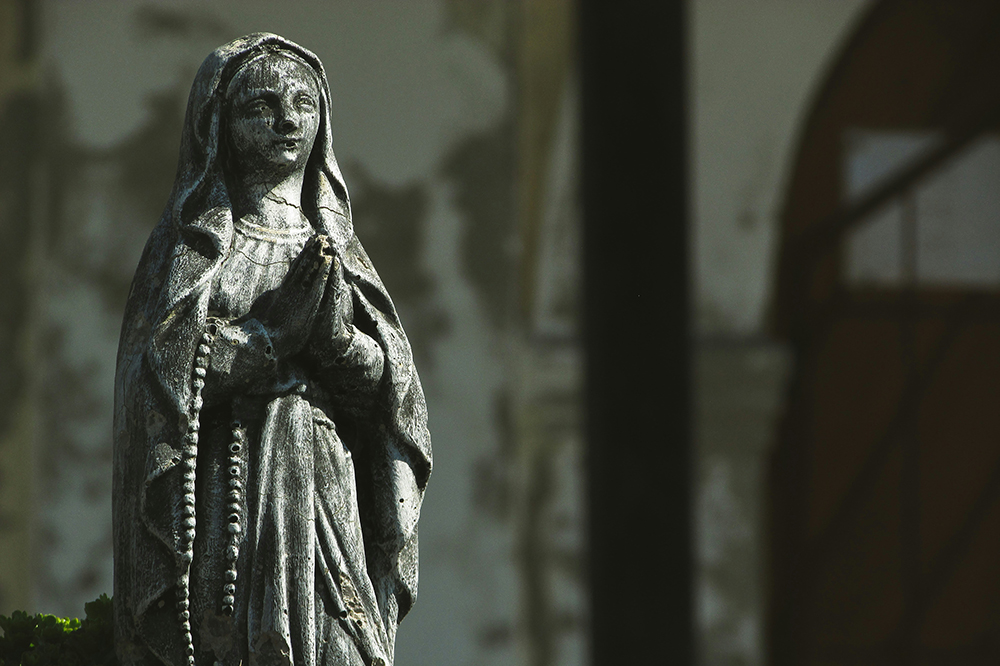
(Unsplash/David Gabric)
As a religious sister, I often find solace in the evening vespers when we sing a prose from Gitanjali by Rabindranath Tagore:
Have you not heard his silent steps? He comes, comes, ever comes.
Every moment and every age, every day and every night he comes, comes, ever comes.
Many a song have I sung in many a mood of mind, but all their notes have always proclaimed, 'He comes, comes, ever comes.'
In the fragrant days of sunny April through the forest path he comes, comes, ever comes.
In the rainy gloom of July nights on the thundering chariot of clouds he comes, comes, ever comes.
In sorrow after sorrow it is his steps that press upon my heart, and it is the golden touch of his feet that makes my joy to shine.
Tagore's profound awareness of God's presence resonates deeply with me. He repeatedly says, "He comes, comes, ever comes." Each line speaks volumes: whether one believes in God or not, God comes and is there, often invisible in everything.
Advertisement
In the field of midwifery nursing, I find the challenges daunting yet extremely rewarding. A significant portion of my work involves acting as a liaison for women who face the pressure to terminate their pregnancies. My medical and surgical nursing career spans over 20 years, enriched by experiences in public health and midwifery.
In India, an unmarried woman becoming pregnant is often seen as taboo and scandalous.
One rainy night in August 2014, during a torrential downpour, a woman was brought to our convent clinic, complaining of excessive bleeding and severe abdominal pain, compounded by hypertension. Since her mother mentioned that she was not married, I assumed she was simply obese, not pregnant. Torn between my desire to help and her refusal to allow a pelvic examination, I felt a storm brewing within me, just like the one outside. Ultimately, I administered pain relief and sent her for a sonogram, which revealed the shocking truth: she was full-term pregnant.
The baby girl she delivered suffered from meconium aspiration syndrome due to the mother's high blood pressure. Tragically, the mother refused to accept her.
A charismatic couple who adopted the infant returned her eight days later, complaining of high fever and using abusive language toward me. My superiors, irritated by their abusive language, reprimanded me for accepting the child into the convent, so one of my midwifery students took her home.
The fate of that child haunted me day and night, especially with the mounting community pressure. During the novenas in honor of Mother Mary's nativity, I prayed earnestly: "Mother Mary, these days many women are crying to you for the gift of a child. Please send a compassionate woman to adopt this baby girl. Let this be my birthday gift from you."

(Unsplash/Rebecca R)
On Sept. 8, Mother Mary's birthday, I received a call from a couple who had lost four infants to miscarriage, expressing their desire to adopt the baby unconditionally. I wept with joy at this miraculous gift of parents for the girl.
After legally handing over the baby, whom I named Zeline, meaning "dignified one," I witnessed her grow as a blessing to her family. During the Divine Mercy novena, I delivered a homily stating, "I am not a biological mother to this child, but I have been instrumental in birthing the living image of baby Jesus in this God-fearing family." Observing her thriving under compassionate parents, I felt the Holy Family of Nazareth accompany me in my midwifery ministry.
I share this experience not to take a stance on the issue of abortion but to emphasize that as a nurse, my role is to collaborate with our birthing God. Just as Tagore experienced God's coming in every situation, every single soul, whether human or not, I too have often experienced God's presence in every being.
In my full-fledged midwifery ministry, the joy of holding each newborn feels akin to cradling baby Jesus. This experience compels me to ensure no woman loses hope in God's miraculous power of creation.
My midwifery ministry has taken on a profound dimension: I strive to do justice for every unborn child, preparing women — married or unmarried — to welcome the baby Jesus in the form of an unwanted child, regardless of gender or identity.
Tagore's poem opens with a poignant question: "Have you not heard God's silent steps?" The essence of this poem is clear: God comes at every moment. His presence is not confined to a single moment but is a continuous, loving occurrence.
Just as Tagore senses God's presence in silent footsteps, we too can experience his coming in our stillness. "Be still, and know that I am God" (Psalm 46:11). This awareness helps us recognize that Advent exists in every season, allowing us to celebrate Christmas at each moment, especially with the arrival of every new life.





